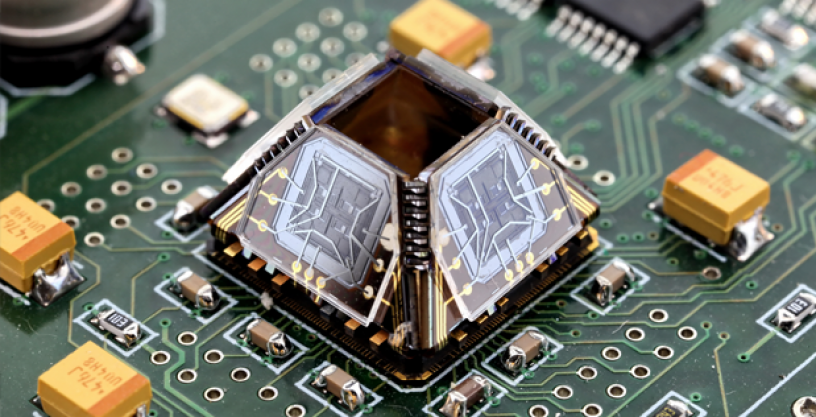
Summary
For decades, Global Positioning System (GPS) technology has been incorporated into vehicles and munitions to meet DoD requirements for precision guidance and navigation. GPS dependence creates a critical vulnerability for many DoD systems in situations where the GPS signal is degraded or unavailable.
Micro-PNT is developing high-performance miniature inertial sensors to enable self-contained inertial navigation for precise guidance in the absence of GPS. The program focuses on creating low cost, size, weight and power (CSWaP) solutions for precision navigation in harsh environments relevant to DoD needs.
To achieve this, Micro-PNT is developing sensors that operate under high dynamics (MRIG) and sensors that self-calibrate (PASCAL). Additionally, Micro-PNT is developing fully integrated, miniature timing and inertial measurement units (TIMU) for ubiquitous deployment and miniature atom-based inertial sensors for extended operation (C-SCAN).
Each program takes a unique approach to explore novel fabrication techniques and operational methodologies to create disruptive technological solutions. In each effort, the common objective is to improve inertial sensor precision, dynamic range, and long-term accuracy, while reducing CSWaP.
MRIG
The Microscale Rate Integrating Gyroscope (MRIG) program is developing batch fabricated, 3-dimensional, micromachined vibratory gyroscopes to directly measure the angle of rotation, rather than rotational rate. MRIGs operate by exciting an elastic wave in a three-dimensional structure that freely precesses in absolute space independent of device rotation. This rate-integrating mode of operation will extend the dynamic range of vibratory gyroscopes as well as eliminate error accumulation from integration of angular rate information. MRIG has successfully developed innovative methods of batch fabrication of miniature 3-dimensional symmetric shells including both wineglass and semi-toroidal structures, as well as other spatially distributed shells with an axis of symmetry capable of direct whole angle operation.
PASCAL
The Primary and Secondary Calibration on Active Layer (PASCAL) program addresses the issue of long-term calibration drift of MEMS inertial sensors by providing in situ self-calibration, either physically or electronically. On-chip calibration enables periodic internal error correction to reduce drift and temperature sensitivity, thereby improving performance and eliminating the need for periodic re-calibration data or field component replacement. The objective of the program is to demonstrate self-calibration of gyroscope bias and scale factor with relative stability of 1 ppm over a one-month measurement cycle.
TIMU
The single-chip Timing and Inertial Measurement Unit (TIMU) addresses the challenges associated with integration of MEMS inertial sensors. The TIMU goal is to develop a tactical-grade IMU, including simultaneous co-fabrication of 3 gyroscopes, 3 accelerometers and a resonator, in unprecedented cost, size, weight, and power (CSWaP). The end goals of the TIMU program are the demonstration of a single-chip IMU which maintains an accumulated position error of less than 1 nmi/hour with device volume of less than 10 mm3 and power consumption of less than 200 mW.
C-SCAN
The Chip-Scale Combinatorial Atomic Navigator (C-SCAN) program is developing miniature atom-based inertial sensors. Atomic sensors have demonstrated phenomenal accuracy and long-term stability, but are limited in their application due to large CSWaP, requiring wall plug power and a benign, controlled environment. C-SCAN is miniaturizing the physics and reducing the necessary technology into a deployable package. Two approaches are being investigated: Nuclear Magnetic Resonance (NMR) and Atomic Interferometry (AI). AI sensors are much more complex, but simultaneously sense both rotation and acceleration.
C-SCAN has successfully demonstrated small-scale NMR gyroscopes and AI sensors in controlled environments. However, due to complexity, AI systems still require laboratory-grade lasers, optical systems, and vacuum pumps. To address these limitations, the micro-PNT program is, in parallel, developing enabling component technology for cold-atom microsystems (CAMS). CAMS is developing innovative MEMS and photonic solutions to enable practical deployment of AI sensors in DoD-relevant environments.
This program is now complete
This content is available for reference purposes. This page is no longer maintained.
This program is now complete.
This content is available for reference purposes. This page is no longer maintained.
